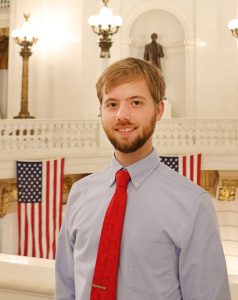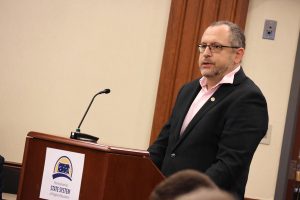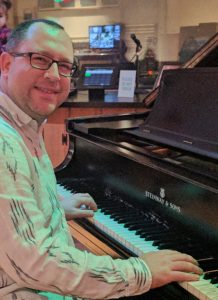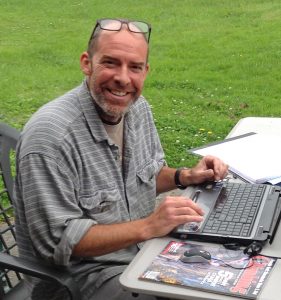Blog
APSCUF doesn’t need you to buy gift cards
Stay vigilant to avoid scams, monetary loss

Photo/Pexels
Some APSCUF members reported receiving emails from individuals pretending to be chapter presidents and asking for payments. APSCUF does not send unexpected emails requesting money (including transfers or gift cards) to members. The individuals who are sending these suspicious emails are performing a scam operation known as phishing.
Phishing operations involve individuals who send emails, text messages, or phone calls pretending to be figures of authority or personal significance, asking for some form of payment or personal information such as passwords or account numbers. If you pay or interact with these sources, they can gain access to your finances and drain your accounts. That is why it is important to know how to identify these operations.=
A few ways to make sure you do not fall for one of these phishing scams:
- In a new email and using the address you know is correct, contact the person the scammer is pretending to be to make sure the request is legitimate.
- Never buy/give gift card information over email.
- Do not give phone or bank passwords to people asking for them.
Unfortunately, APSCUF cannot stop these phishing attempts, which are a national issue. We encourage members to be vigilant and to be cautious with any suspicious links, emails, or phone calls.
For more information, visit these resource pages:
—Ian C. Hall,
APSCUF intern
(Almost) former intern, future teacher: Hall reflects on summer experience
In January, I received an email that brought my attention to this internship. This email was a followup to a conversation from the previous semester about opportunities outside of teaching in the field of education. This was one such opportunity. With a basic understanding of how unions work as a PSEA member and wanting to know more about union operations, this internship was the perfect opportunity. Now, as the internship comes to an end, my understanding of not just union operations — but also journalism, lobbying, personal relations, research, interviewing, and writing — has expanded.

PennWest Edinboro student Ian C. Hall visited the Pennsylvania Capitol as part of his summer internship with APSCUF’s government-and-communication department. Click here to learn more about APSCUF internships. APSCUF file photo
The skills learned from the last 10 weeks are ones I can use in my future career as a teacher. From talking to members of the general assembly to writing profiles on APSCUF members, this internship has helped me become a better communicator. A teacher’s job is to transmit information from themselves to the students. The vast majority of time, the teacher is the only person in the room who understands the topic before the lesson, thus, for students — who have to work within the context of what they know — to learn, teachers have to be able to communicate and present information in a multimodal fashion to ensure the best come for students. This internship had me present information in a few different ways: orally, in writing, and visually. Each time, this information was reaching a wide audience with varying skills, experiences, and backgrounds.
I have also learned a lot about data sets. Part of this internship was analyzing and creating data sets. These data sets were both quantitative and qualitative, giving experience with both kinds of data sets. For various assignments, I would either have to gather data and compile it or, in one instance, find raw data to compile and create a new data set. This skill can also be used as a teacher. Teachers keep gradebooks for their students. These gradebooks are data sets. Having spent time working with data sets, it will be easier for me to identify areas where students are struggling, looking at trends in their grades and quality of work. Overall, this internship has helped me hone many skills I will use as a teacher.
This internship was also a lot more than just a way to gain experience for my future career, but a fun learning experience as well. I have learned just how difficult journalism is and have gained a much deeper respect for the field because of it. It was also a cool experience getting to talk to members of the general assembly on topics that affect me as a student as well as a future educator. Not to mention meeting the amazing people who work at the APSCUF office.
My favorite part of the internship was interviewing people for membership profiles. I enjoyed listening to them and their stories. From where they grew up, to how their interest in their fields has developed, it was nice talking to them as people, rather than as mentors. Everyone also gave me great advice on what to expect as an educator and to understand that every lesson I teach will be just as much of a learning experience for me as it is for the students.
All in all, I had a great time this summer working with both Kathryn Morton and Sean Crampsie. They both taught me a lot about their positions and responsibilities. I would also like to thank Assistant Professor Erik Bentsen for bringing this internship to my attention and Professor Marc Sylvester for writing a wonderful letter of recommendation. Without them, I cannot say I would have had this amazing opportunity.
—Ian C. Hall,
APSCUF intern
Merger, Meteorology, and More: Meet Mario Majcen

California APSCUF Chapter President Mario Majcen speaks to Pennsylvania’s State System of Higher Education’s Board of Governors in mid-July 2025. APSCUF photo
Shortly after becoming his chapter’s vice president, Mario Majcen was part of a three-day strike in October 2016. Now, nine years later, he serves his chapter as president — and all of APSCUF as a statewide officer-at-large.
Majcen grew up and graduated from college in Croatia before immigrating to the United States. He got his master’s in meteorology from the University of Utah before moving to Pennsylvania for his Ph.D., which he received from Penn State in 2009, after which he became an assistant professor at California University of Pennsylvania.
“One of the differences between the offers that I got for the first job is that the faculty are unionized at California University as all PASSHE schools, and I decided to go there,” Majcen said.
He joined APSCUF the first day he was able to and has been increasingly more involved since. In 2013, Majcen was elected as an alternative delegate to the legislative assembly. Then in 2016 he was elected as Cal U’s APSCUF chapter vice president. He also became the mobilization chair.
“You know, they said, ‘Mostly nothing happens. It’s a really easy position,’ and of course, you know, that was the strike year,” Majcen said, reflecting on his position as mobilization chair.
Issues had been building before Majcen was elected.
“There was almost nothing sudden about this,” Majcen said about the strike, “Our negotiations to get a contract were stuck for a while … So everything was building towards that.”
A few years after APSCUF’s first and only statewide strike in its 88-year history, Majcen was part of the merger of Cal U, Clarion, and Edinboro into PennWest University. Despite hardship during this time, there were benefits.
“I have met some amazing people in union chapters in Edinboro and Clarion that I communicate and collaborate with now, so it makes the union much stronger,” Majcen said.
In 2022, Majcen became the California APSCUF chapter president. This past April, he ran for officer-at-large.
“During that consolidation process, I acquired experience going through that and knowing how to solve problems,” he said. “And I decided that I want to make an impact and help on a state level, having that expertise, especially in a sense of how I could enhance collaboration between different chapters.”

Dr. Mario Majcen visits RCA Studio B in Nashville, Tenn. Photo/Submitted
Before taking on his responsibilities with APSCUF, Majcen teaches classes in meteorology. This fall he will teach an introduction to weather and climate, along with two lab sections.
“Frankly, I can’t wait to teach that class,” he said. “It’s an awesome class. It’s every student who comes to that class. And it’s not for majors. It’s general education. I like engaging with students from different backgrounds. This is definitely a job where I feel that I’m making a difference.”
There is another reason why he enjoys teaching.
“Helping the students succeed is the way, and probably the only way, that I can pay back
to my professors,” Majcen said. “I cannot pay back for the time they spent helping me. So one way of, you know, kind of returning the favor is to help the future students. I enjoy that a lot.”
—Ian C. Hall,
APSCUF intern
See Dr. Mario Majcen’s remarks to the Board of Governors – July 17, 2025
The July 17 Board of Governors meeting streamed via YouTube. Below are Dr. Mario Majcen’s comments as prepared.
Chair Shapira, Chancellor Fiorentino, governors, presidents, and guests,
My name is Mario Majcen. I am an at-large member of the APSCUF executive council and a professor at PennWest University. I also have served as California chapter president since 2022.
In my comments, I would like to reflect on statements that I read in the media about the ongoing consolidation of our universities that took effect in 2022. In those statements, the consolidation is portrayed as a success — and as a path that other systems of higher education should follow.
We are in the third year of this consolidation. We are not done, but we are getting close. And I can tell you from personal experience and from the data on enrollment, on impacts on student experience, and from the faculty perspective that there were many better alternatives in 2021 when this board decided to consolidate universities.
For the last four years since the decision was made, the best phrase to describe the consolidation is “building an airplane while flying it.” Not my words; this description comes from one of the four university presidents that I served under in the past four years, who did her best to keep our recently consolidated airplane from crashing to the ground.
I am not here to argue for reversing the consolidation. I am just asking for objectivity in assessing its impacts.
The consolidation was done without a detailed implementation plan, but with just a concept which two newly formed universities had to figure out how to implement while still doing everything else that needs to be done to serve our students in the best possible way and provide the high-quality education that they expect and deserve.
Hindsight is 20/20, they say. I wouldn’t know; my sight hasn’t been that good in a few decades. But IF the hindsight is indeed 20/20, then let’s learn lessons from this experience and not glorify it as a success.
Our faculty, staff, and administrators worked on new policies, new curriculum, new procedures. Only to redo them. And sometimes again. It was an exhausting process that seemed to never end.
And now that we finally stabilized enrollment, we will be working on revising curriculum again, as we consider changes to our academic arrays.
As a professor and a former first-generation student, I am only asking for this: Give faculty time to focus on our students; give us time to work on professional development and learning new skills to transfer to our students; give us time for designing better and better lectures, labs, and hands-on activities for our students; and give us equipment and technology to deliver education in the best possible way for our students.
As you do that, please reflect on PASSHE being a system. Is PASSHE really a system, if students who pay the same tuition get very different experiences and opportunities, depending on which university they attend? Or are we just calling ourselves a system because of a few dozen Board of Governors policies that apply at all 10 universities with very different student experiences?
Regardless of any challenges that lie ahead, the faculty will, as always, be there for our students to ensure their success.
Thank you.
From construction to executive council: Meet James Guignard

James (Jimmy) Guignard’s term as State APSCUF faculty officer-at-large began June 1. Photo/Submitted
While working in construction for six years, James (Jimmy) Guignard saw some of the effects of not having a union. When he got to Mansfield University in 2005, he said joining APSCUF was a “no brainer.” Now, 20 years later, the professor sits as an officer-at-large on State APSCUF’s executive council.
Guignard was raised in North Carolina. He started his higher education career at Appalachian State University, where he graduated with a degree in communications. Afterward, he worked nonunion construction, where he witnessed lack of overtime despite working overtime hours, having to pay for his own insurance, and no security in the position. When he went back to college, Guignard started as an English-education major, but later changed to an English major, so he could go straight into grad school. He then went on to receive his master’s in English from Western Carolina University. Wanting to move west, Guignard went to the University of Nevada, Reno, for his doctorate. After learning and teaching there, he graduated with a Ph.D. in English composition and rhetoric.
After graduating from his doctoral program, Guignard applied to close to 70 jobs across the country, and received a position with what was then Mansfield University, one of his first-choice schools, as an assistant professor and director of composition. The rural setting and prominent history of mining and fracking continued Guignard’s interest in environmental rhetoric. Biking the trails and roads surrounding Mansfield during the Marcellus Shale boom inspired him to write his book, “Pedaling the Sacrifice Zone: Teaching, Writing, and Living above the Marcellus Shale.”
When he arrived in Mansfield, Guignard did not know a lot about how unions work, but he knew the challenges of not having one.
“I do have a strong sense that a lot of times, employers will not take care of their employees in the way that they should,” Guignard said.
This notion compelled him to join APSCUF.
“I started getting more involved in it because I started understanding more about what the union was doing,” Guignard said.
Then retrenchments came.
“I saw how the union was helping out with that,” he said.
Guignard’s colleagues later elected him as a delegate to APSCUF’s legislative assembly. This past academic year, a couple of members asked him about running for officer-at-large.
“I hadn’t even thought about it — like it wasn’t even on my radar,” Guignard said. After a conversation with his chapter president, Guignard decided to nominate himself for the position.
“We Mansfield, we Commonwealth, we the State System need to be represented in as many conversations as we can be,” Guignard said.
Officers-at-large have a vote on the State APSCUF executive council. In Guignard’s officer role, which he is still learning, he is also a member of the personnel committee.
Back on campus, the professor of English teaches classes on composition and writing. Guignard was department chair for eight years, including two years during the consolidation process.
One of his favorite parts of working as a professor is the students, Guignard said. He mentioned it is rewarding watching students graduate knowing that he was a part of their academic journey.
“I like the fact that I’m constantly learning stuff myself from students,” he said. “So I know what I know, and I think I have stuff to offer to students, but they also have stuff to offer.”
—Ian Hall,
APSCUF intern
This post has been updated to correct information about Guignard’s service as a department chair.